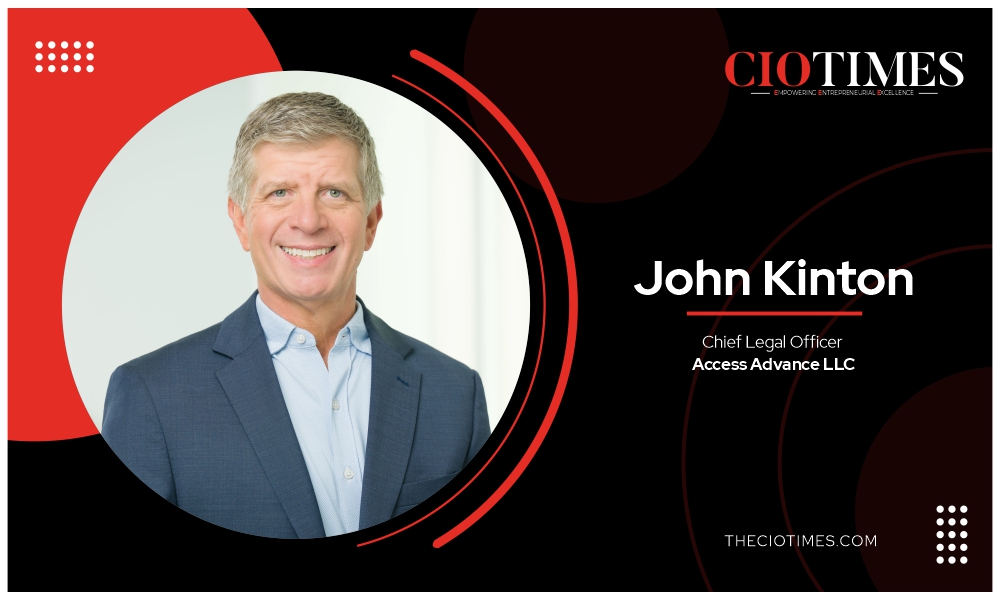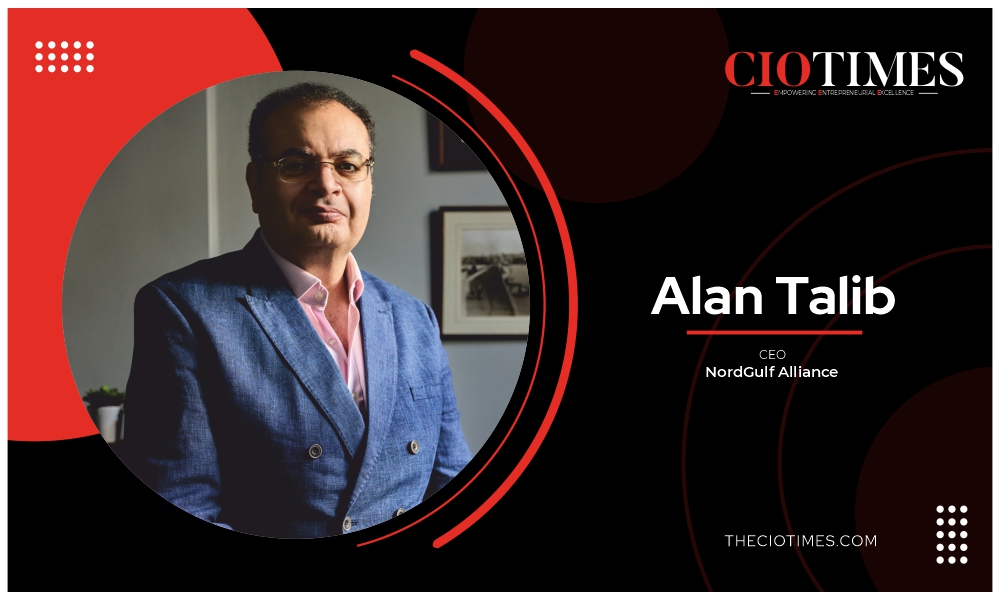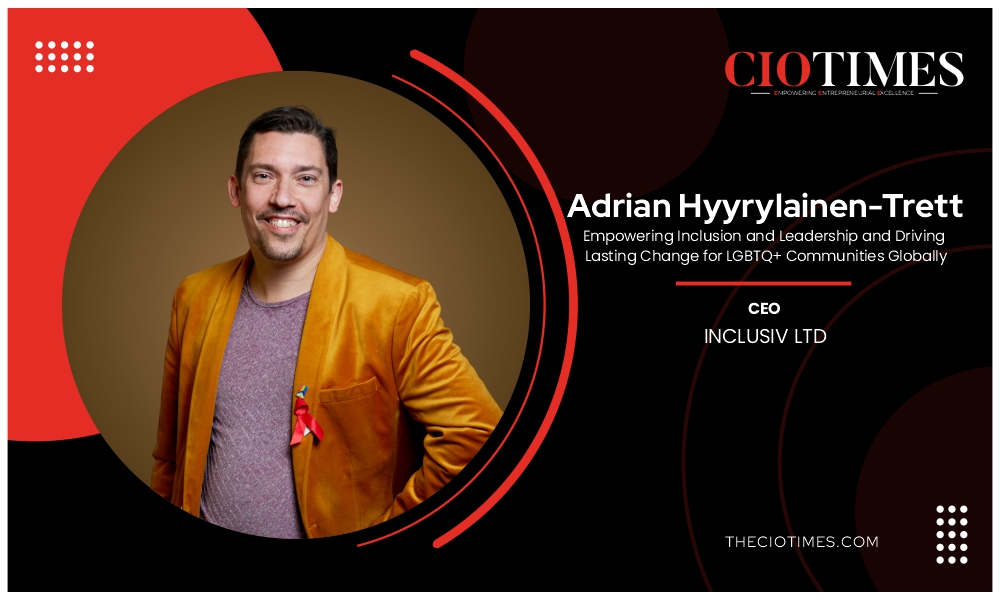“Nothing is ever as good or as bad as it first seems.”
This line suits a leader who learned to weigh lift and drag before he weighed risk and reward. John Kinton is such a leader and the story that follows is about steadiness. It is about choices that favor transparency, balance, and results.
In courtrooms and conference rooms, John draws the same line. Facts first, people next, and progress always. This approach defines why he stands among 2025’s Top CLOs Shaping Business and Governance.
Standards evolve, laws shift and new tools like AI test old rules. John meets that change with preparation and calm. He invites implementers to the table and earns the trust of licensors. He keeps the purpose in view, creates value, reduces friction and sets a path others can use. That is how a legal department becomes an engine for growth for business.
John started his career as an Aeronautical Engineer doing research in McDonnell-Douglas’s Phantom Works and became an inventor on two patents. Through that experience, he met several patent attorneys who inspired him to go to law school.
After graduating law school in 1998, he moved to California to join a startup where he was both General Counsel and Director of Engineering. As the company was working on obtaining investment, John learned to appreciate the nature of patents as business tools, not just recognitions of technical advancement.
The startup did not survive the dotcom bust, and he went into private practice as a patent litigator. His very first case was Rambus v. Infineon, a landmark case in standard essential patent (SEP) circles.
Throughout his career in private practice, he has been involved in numerous high profile patent litigations involving technology standards, including memory standards, telecom standards, image compression standards, and video compression standards. Today, John serves as Chief Legal Officer at Access Advance LLC, guiding patent pools that touch how the world streams video.
A Unified Approach to Modern Video Licensing
Access Advance LLC is an independent licensing administrator, established in 2015, currently offering industry-leading patent pools for licensing essential patents of the most important standards-based video codec technologies.
The company offers a market-driven, modern, efficient, and transparent approach to patent pool licensing, at FRAND rates that reflect a fair balance between the interests of patent owners and implementers. It currently administers three patent pools.
Under Access Advance’s HEVC Advance Patent Pool, licensees enjoy coverage for over 27,000 essential, high-quality patents necessary to implement the H.265/HEVC standard, which the company believes represents approximately 75-80% of the universe of HEVC SEPs. Access Advance also offers its VVC Advance Patent Pool, currently providing coverage for 3600+ patents essential to the H.266/VVC standard.
To promote further efficiency and savings, Access Advance offers a Multi-Codec Bridging Agreement (MCBA), providing companies that are licensees in both the HEVC Advance and VVC Advance patent pools with substantially reduced royalties for products that implement both codecs as compared to the sum of the royalty rates of the two pools individually.
And in January 2025, Access Advance launched its newest offering: the Video Distribution Patent Pool (VDP Pool). The VDP Pool includes, for a single royalty, a license to standard-essential patents covering each of the four most modern codecs currently used or contemplated for use by video distribution providers: HEVC, VVC, VP9, and AV1.
Tailored Royalties and Transparent Rules
Access Advance started based on the simple premise that the most successful patent pools are the ones that fairly balance the interests and concerns of both patent-owners and implementers.
The company was formed in response to the concern that video codec licensing of SEPs had shifted from an appropriate balance between licensors and implementers to one that undervalues the contributions of the patent holders and their patents, which are at the core of technology products, as compared to the contributions of implementers.
Access Advance’s approach rebalances this with a tailored royalty structure that accounts for licensees’ product type, country-of-sale and compliance, rather than a one-size-fits-all regime that will necessarily undervalue the technology’s contribution to multiple product types. The significant success of their HEVC pool with more than 350 licensees and substantial coverage of the products licensable under the pool is a testament to this approach.
Maintaining the Balance
John says that aside from the typical challenges, the biggest challenge he faces as the CLO is balancing the sometimes-disparate interests of both Advance’s licensees and licensors, while navigating the ever-evolving patent, contract, and competition legal landscape in multiple jurisdictions around the world. Access Advance has done an excellent job of striking a balance and as CLO, one of John’s mandates is to maintain that balance.
Every patent pool licensing administrator must convince those that need a license to take one. The company has an obligation to the licensors to optimize the value of their patents. A challenge that Access Advance faces from time to time is that licensees that have acted appropriately—by recognizing the need to be licensed to the patents they use in their products and services—are disadvantaged by those that continue to infringe the patents of their licensors.
If, after a long period of negotiation, the company becomes convinced that the implementer is not acting in good faith and is unwilling to become licensed, it brings that information to the attention of the licensors, some of whom may choose to begin an enforcement action against the unwilling implementer.
Access Advance provides appropriate administrative support, and the litigating licensors have sole control over every facet of the litigation, including if, when, and how to settle. Each situation is a unique and interesting challenge.
Access Advance prides itself on its fairness and transparency in licensing terms. It publishes an overview of each licensing program on its website which features a royalty rate table. The company’s licensing professionals are always available to explain aspects of the tailored royalty structure to potential licensees and licensors.
To provide further transparency and thought leadership, Access Advance also offers a white paper explaining the fairness and reasonableness of its rates to anyone with a bona fide interest in joining the pool as either licensor or licensee. Anyone navigating to the company’s website, for example for the HEVC patent pool, will find a list of the patents in the pool that have been determined essential by the patent evaluator, will see for each patent the specific portions of the standard on which claims of the patent were determined by the patent evaluator to be essential, and will see lists of licensors and licensees.
Moreover, the company’s website includes its Duplicate Royalty Policy to assist licensees that may be licensed to SEPs through more than one pool or joint licensing program, and if requested, Access Advance will provide a detailed estimate of the royalty offset a licensee could expect to receive in that situation.
The historical success of the company’s HEVC and VVC device pools which reflects significant trust relationships built with their diverse roster of licensors and licensees, is one of the reasons the VDP Pool launched successfully with 31 licensors and 4 licensees (and has since added licensors and licensees).
Licensing That Powers the Streaming Economy
Device manufacturers, streaming platforms, and users all benefit from access to the most advanced video codecs in terms of bandwidth savings, storage costs, and more efficient delivery of high-quality video.
The vast majority of internet traffic is video content. Access Advance’s licensing programs play a vital role in the video ecosystem by making available a large number of standard-essential patents for a defined royalty on terms that balance the interests of both licensors and licensees. As the pools attract additional licensors and additional SEPs, licensees benefit from the increased coverage for no additional incremental cost. This clarity around royalty rates provides predictability that facilitates long-range planning by implementers.
The success of Access Advance’s HEVC device pool provided a natural launching point for its Video Distribution Patent Pool, which it developed in response to a request from the market to develop a pool licensing the four modern video codecs that would apply the fair and balanced approach that is the company’s trademark to the nascent licensing market for streaming video content.
Access Advance was able to call upon trusting relationships it established through the device pools and undertook a listening tour to understand the particular concerns of streaming platforms and SEP holders. All that upfront work resulted in a market-responsive pool license offering that the company believes will lead to success from the start.
Imparting Valuable Advice
We asked John about what advice he would give to companies navigating patent licensing in the video technology space, he said, “Probably the biggest piece of advice is to actively engage in the licensing process, particularly as it relates to SEPs.”
John says negotiation of SEP licenses involves some unique characteristics that make it generally inadvisable to ignore licensing offers in the hope that the issue will go away. And, if a company approaches about an SEP license, he says it’s always a good idea to see if a pool license is available because it is generally more efficient (and less expensive) for a licensee to negotiate a single pool license covering the SEPs of many licensors than it is to negotiate individual bilateral licenses necessary to clear the same risk.
The Next Decade of Patent Pools
Talking about the future of patent pool licensing, John sees two main areas of evolution over the next decade: Evolution in the legal framework governing patent pools, and evolution through the use of AI tools.
The legal interpretation and application of FRAND (fair, reasonable, and non-discriminatory) commitments for SEPs will continue to be refined by courts and policymakers, impacting licensing negotiations and the availability of injunctions against infringers. The assertion of jurisdiction by courts in some countries to set global FRAND rates will continue to impact multinational patent licensing and litigation strategies.
Additionally, patent pools will remain subject to antitrust or competition scrutiny and need to be carefully structured and managed to ensure that they are procompetitive. Adopting transparent and fair licensing practices, including FRAND terms and openness to new members, as Access Advance has done, is crucial for patent pools to thrive and survive legal challenges.
Separately, John doesn’t think one can talk about how anything will evolve over the next decade without mentioning AI. At minimum, patent pools and their independent evaluators will implement AI analytics to streamline patent searches and enhance analysis and evaluation processes resulting in stronger and more valuable patent portfolios.
There are potential applications in the operations of pool administration as well, for example in the auditing function. Of course, there will be a whole host of new legal issues associated with AI as well. All this is to say nothing of the impact AI will have on video compression itself, particularly on the encoding side since companies will likely deploy bespoke AI models to generate image and video content.
From Codecs to Smart Homes
Access Advance’s mission is to continue to be the industry-leader in administering patent pools for licensing essential patents of the most important standards-based video codec technologies.
John sees Access Advance continuing to expand the scope of their existing pools and adding new pools in the video codec space, like their newly launched Video Distribution Patent Pool. He eventually sees the team leveraging their skills in administering patent pools to add additional pools in other non-video standards-based technology areas, such as a Smart Home patent pool the company is currently exploring.
John Kinton’s approach remains steady. He leads with transparency, tailored royalties, and a focus on balance between licensors and implementers. The mission is clear. Build coverage, reduce friction, and keep licensing fair.




